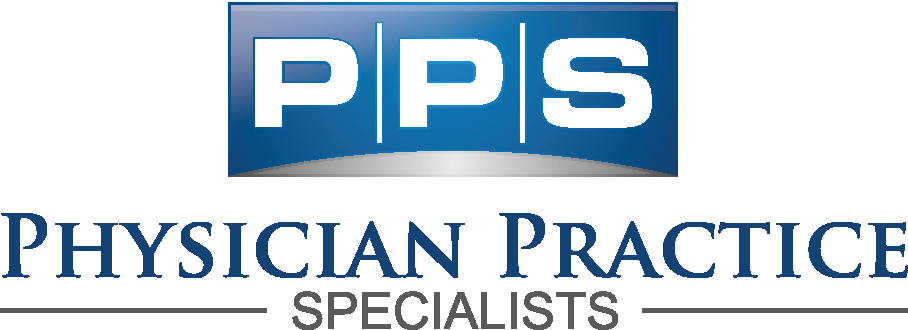For healthcare organizations, credentialing denials can get in the way of effective revenue cycle management (RCM). Physician Practice Specialists’ team of revenue cycle management consulting experts can help you keep track of medical billing and revenue. Here’s more information on credentialing denials and the role they play in revenue cycle management:
Understanding Credentialing
Credentialing is the process through which healthcare providers and organizations are evaluated to determine if eligible to participate in insurance networks and deliver medical services. This process involves verifying a provider’s qualifications, licenses, certifications, and adherence to industry standards.
Successful credentialing allows healthcare providers to establish relationships with insurance networks to optimize billing and reimbursement for their services. Credentialing requires ongoing maintenance to confirm that providers remain compliant and eligible to deliver care and receive payment.
Credentialing Denials
Credentialing denials occur when a healthcare provider’s application to join a specific insurance network is rejected. A refusal can be caused by various factors, including incomplete or inaccurate information, expired licenses, insufficient documentation, or failure to meet the network’s quality standards.
Because of credentialing denials, providers may lose the opportunity to treat patients covered by the denied insurance network, potentially losing revenue and patient trust. Organizations may also suffer financial setbacks due to these denials, impacting their revenue cycle management and overall financial stability.
The Role of Credentialing Denials in Revenue Cycle Management
Denied credentialing applications can delay the provider’s ability to bill and receive reimbursement for services rendered to patients covered by the denied insurance network. This delay directly affects the provider’s revenue system and can strain cash flow, impacting the organization’s financial health.
Addressing credentialing denials involves an investment of time and resources. Administrative staff must dedicate additional effort to rectifying denials, diverting their attention from other necessary tasks. These costs further impact the overall operational efficiency of the organization.
Patient Access and Experience
Credentialing denials can lead to reduced patient access to care. Patients unable to see their preferred providers due to credentialing issues may seek care elsewhere, affecting patient satisfaction and potentially driving patients away from the organization. If they have to settle for medical care from a different provider, they may leave negative reviews or be biased towards their provider.
Reimbursement Discrepancies
Credentialing denials can lead to discrepancies between billed amounts and actual reimbursements, as providers may inadvertently render services to patients without proper coverage. This miscommunication can negatively impact the accuracy of financial projections and budgeting.
Denied credentialing may influence contract negotiations with insurance networks. The provider’s inability to participate in specific networks can weaken their negotiating position, impacting reimbursement rates and contractual terms.
Reputational Damage
Repeated credentialing denials can tarnish a provider’s reputation, making it difficult to establish trust with patients and insurance networks. This can have long-lasting implications on the provider’s ability to grow their patient base and maintain strong relationships with partners.
Strategies to Mitigate Credentialing Denials
Effective credentialing begins with submitting accurate and complete applications. Healthcare organizations should establish rigorous processes to thoroughly review applications for completeness, accuracy, and adherence to the requirements set by insurance networks. This can help to identify potential errors, omissions, or inconsistencies that lead to denials. By dedicating time and resources to confirming that all necessary information is provided and accurately entered, organizations may significantly reduce the likelihood of credentialing denials.
Regular Audit Protocols
Regular audits of provider credentials and documentation are beneficial for preventing credentialing denials. Healthcare organizations should establish routine audits to verify that licenses, certifications, and other required documentation are current and compliant with industry standards. Implementing automated systems that track expiration dates and renewal requirements can help streamline this process.
Audits enable organizations to identify potential issues before they escalate into denials. By catching problems early, healthcare entities can rectify issues and verify that providers remain eligible to participate in insurance networks, maintaining a steady revenue stream.
Enhanced Communication
Close collaboration between credentialing and billing departments helps verify that the provided information is accurate and up to date. Timely sharing of information about the status of applications, renewal requirements, and provider updates can provide effective communication. By establishing channels of communication, healthcare organizations can address potential issues promptly, rectify discrepancies, and maintain a seamless flow of information between departments involved in the credentialing process. Physician Practice Specialists upholds clear communication with our clients. Our team is happy to help with any questions you may have during our consultation.
Continuous Monitoring
Healthcare organizations should adopt a proactive approach to monitoring provider credentials beyond the initial application phase. Implement mechanisms for continuously monitoring licenses, certifications, and other necessary documentation. This ongoing monitoring helps identify potential problems before they lead to denials.
Automated systems can help confirm that providers comply with insurance network requirements. Organizations can take preemptive action by consistently monitoring provider credentials to rectify issues and avoid credentialing denials.
Meet With Revenue Cycle Management Consulting Experts
Healthcare professionals can concentrate on their patients and treatment with the support of Physician Practice Specialists (PPS). PPS offers billing and certification services to safeguard your patients and healthcare providers. We can simplify your insurance and RCM processes. Call us today to schedule a free consultation.


